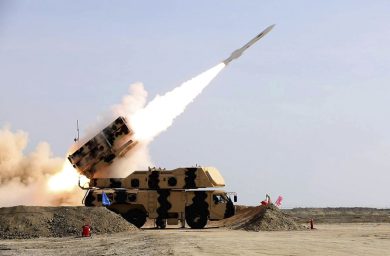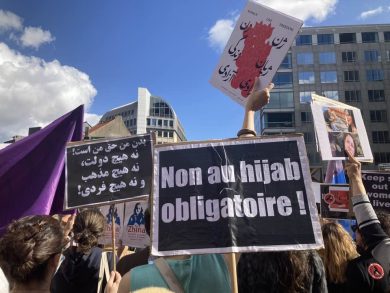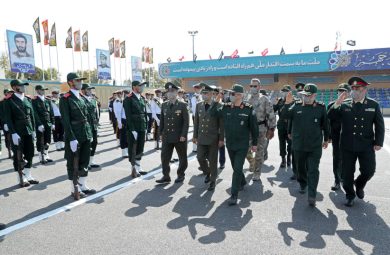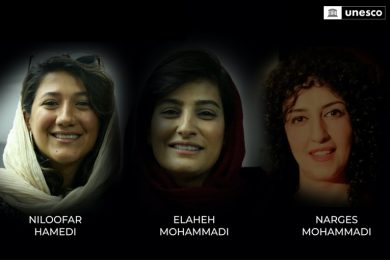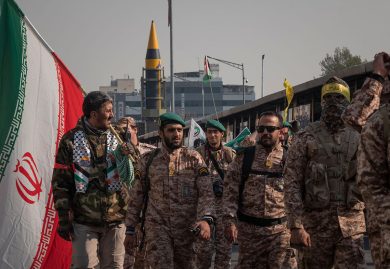The Islamic Revolutionary Guard Corps (IRGC) is a multifaceted entity operating as both a military and economic powerhouse within Iran, and as a destabilizing force across the Middle East and beyond. Its reach is maintained through a vast network of proxy groups, illicit financial activities, and military interventions. Addressing the threat posed by the IRGC requires effective strategies, among which sanctions and formal designations as a terrorist organization are critical tools. These measures, when implemented decisively, can severely limit the IRGC’s capacity to operate by targeting its financial networks, international influence, and political legitimacy.
The Role of Sanctions in Weakening the IRGC
Sanctions are one of the most effective tools to undermine the IRGC’s operations. By isolating its financial networks and cutting off access to resources, sanctions can disrupt its activities both domestically and internationally.
1. Cutting Financial Lifelines
The IRGC funds its operations through a combination of state resources, business enterprises, and illicit activities. It controls a significant portion of Iran’s economy, including sectors like construction, energy, and telecommunications. Sanctions targeting IRGC-affiliated entities can freeze assets, block transactions, and deter international companies from engaging with them.
For example, U.S. sanctions under the Countering America’s Adversaries Through Sanctions Act (CAATSA) have targeted IRGC-controlled companies and individuals, restricting their ability to engage in global trade. These measures have also discouraged foreign investments in Iran, further limiting the IRGC’s access to funds.
2. Disrupting Illicit Financial Networks
The IRGC engages in smuggling, money laundering, and other illicit activities to finance its operations. Sanctions aimed at these networks can choke off critical revenue streams. Designating financial institutions and intermediaries that facilitate IRGC transactions increases the cost and risk of doing business with them, forcing many actors to sever ties.
3. Weakening Proxy Groups
Many of the IRGC’s regional proxies, such as Hezbollah in Lebanon and the Houthis in Yemen, rely heavily on Iranian funding and weapons. Sanctions that target the IRGC’s supply chains and arms transfers can reduce the capabilities of these groups, limiting their ability to destabilize regions and conduct operations.
The Impact of Terrorist Designations
Designating the IRGC as a terrorist organization has far-reaching implications that go beyond financial restrictions. Such a designation formally identifies the IRGC as a threat to international peace and security, increasing pressure on Iran and its allies.
1. Legal and Diplomatic Consequences
A terrorist designation allows governments to prosecute individuals and organizations that support the IRGC, whether financially or operationally. It also restricts the IRGC’s ability to operate in foreign countries, as diplomatic and legal frameworks compel states to cooperate in countering its activities.
2. Enhanced Sanctions Enforcement
A terrorist designation strengthens the enforcement of existing sanctions, ensuring that individuals and entities linked to the IRGC face legal and financial consequences. It also enables the freezing of assets and the prohibition of financial transactions with designated individuals or groups.
3. Stigmatizing the IRGC
A terrorist designation delegitimizes the IRGC on the global stage, making it more difficult for the organization to justify its activities or gain international support. This stigma extends to countries and entities that collaborate with the IRGC, increasing diplomatic isolation and reputational costs.
Case Studies: Successes and Challenges
1. The Designation of the IRGC as a Terrorist Organization
In 2019, the United States designated the IRGC as a Foreign Terrorist Organization (FTO), marking the first time a state entity received this designation. This move significantly increased pressure on the IRGC, deterring foreign businesses from engaging with Iran and limiting the group’s ability to operate internationally.
2. Sanctions Against IRGC Proxies
Sanctions targeting Hezbollah and other IRGC-backed militias have disrupted their financial networks and reduced their operational capacity. However, challenges remain, as these groups often adapt by using informal and illicit channels to bypass restrictions.
Challenges and Limitations
While sanctions and designations are powerful tools, their effectiveness depends on consistent enforcement and international cooperation. Some challenges include:
- Evasion Tactics: The IRGC has developed sophisticated methods to circumvent sanctions, such as using front companies, shell entities, and cryptocurrency.
- Lack of Global Consensus: Not all countries align with sanctions or designations, creating opportunities for the IRGC to exploit gaps in enforcement.
- Economic Impact on Civilians: Broad sanctions on Iran’s economy can inadvertently harm ordinary citizens, potentially fueling anti-Western sentiment and strengthening the IRGC’s domestic narrative.
Recommendations for Maximizing Impact
To effectively disrupt the IRGC’s operations, the following measures are critical:
- Strengthening Multilateral Cooperation: Ensuring that sanctions and designations are adopted and enforced globally will close loopholes and enhance their impact.
- Targeted Sanctions: Focusing on IRGC leadership, key businesses, and financial networks can minimize collateral damage while maximizing pressure.
- Combating Sanctions Evasion: Investing in intelligence and enforcement mechanisms can help identify and dismantle the IRGC’s evasion tactics.
- Support for Regional Allies: Bolstering the defenses of countries threatened by the IRGC and its proxies can reduce their reliance on Iranian support.
Conclusion
Sanctions and terrorist designations are indispensable tools in countering the IRGC’s destabilizing activities. By targeting its financial networks, operational capabilities, and international legitimacy, these measures can significantly weaken the IRGC’s influence and reduce its ability to fund terrorism, arm proxies, and destabilize regions. While challenges remain, a coordinated international effort can ensure these tools are effectively leveraged to disrupt the IRGC’s operations and promote stability and security worldwide.
Join Our Newsletter!
Stay informed with the latest updates, news, and ways to take action in the fight for justice and global security. Sign up now to get updates delivered straight to your inbox!

